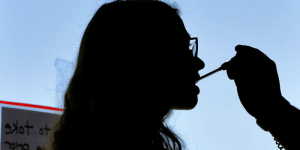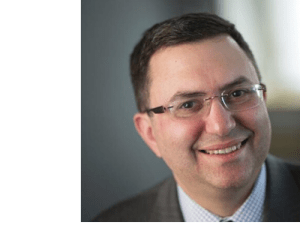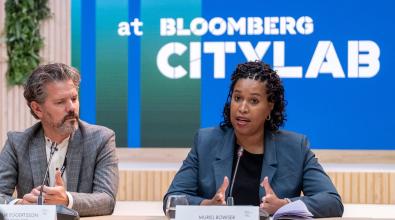Public-health doc’s prescription for city leaders: Fill gaps now!

City leaders on the frontline of the coronavirus crisis are making critical decisions throughout the day — every day. And, as is the case with something as unpredictable and fast-moving as Covid-19, their actions inevitably raise even more questions — “How do we know if an intervention is working?” “How long will this crisis last?” “What should I be focused on now?” Some of those city leaders met virtually Monday with Dr. Josh Sharfstein of the Johns Hopkins Bloomberg School of Public Health in a webinar hosted by the Johns Hopkins Center for Applied Public Research. They had a lot of questions for him about where the Covid-19 crisis is headed. Here are some of those questions, along with Dr. Sharfstein’s answers. (The full recording and slides are available here.)
Thinking beyond the next two weeks, what key decisions will need to be made in April?
We’re really going to have to assess where things are each week. Right now we’re on the exponential part of the growth curve — and that’s not a great position to be in. If we continue to be, there may need to be even tighter restrictions in different places so you can stave [the virus] off and get yourself some time. Right now, the biggest reason for time is for the PPE [personal protective equipment], for the healthcare workers — to try to get them as much as possible before more patients come in.
The other thing to do is try to make as much use of the time you get from severe social distancing to accomplish other things. If you don’t, for example, have a good system in place for long-term care and nursing homes, this is a good moment to do that.
We’ve seen reports that this can last up to 18 months? Will we have to continue social distancing that long?
Most people think that we’re probably looking at at least a few months of pretty serious social distancing. Then we’re going to have to see where we are. And then you can very carefully lighten it up if you have good testing and tracking and tracing to jump on any small outbreaks. That’s basically what they’re doing in Asia right now. So that would be one of the best-case scenarios. Of course, if we find effective treatment along the way or effective preventive interventions along the way that could make this a lot easier.
[Get the City Hall Coronavirus Daily Update. Subscribe here.]
Does infection make someone immune?
People don’t know that for sure, but the people who study viruses believe that there will be a good deal of immunity — as there is for most viruses like this. There are some case reports of people who’ve gotten it twice, although it’s not clear whether or not that was just some misunderstanding of the testing or not. But, in general, there are a few converging lines of evidence that suggests people probably will have some degree of protection, probably a significant amount. But that’s something that’s got to be checked out before we can be sure.
Can you share any particularly good policies for social and economic recovery in the wake of a past public health crisis?
You’ve probably guessed from my answers so far that I’m not in a recovery mindset yet. I do think it’s important for cities, though, to have this in their thinking going forward. This really is bigger than any public health crisis [we’ve seen before]. This may require something more like the Marshall Plan, depending on where we end up. If we get lucky and miss the brunt of this, it may just be needing to help people pay the bills for a while. But if it’s what a lot of people think it’s going to be — for an extended period of time — that’s unprecedented in modern history. We’re going to have to come up with new mechanisms to jumpstart the economy and give people the chance to rebuild their businesses, and all sorts of other things.
Will the warm weather of summer weaken the virus?
I know everybody really wants that. I put that to Dr. Andy Pekosz — he’s a virologist who studies coronaviruses in his lab — and he basically said we can hope for that, but we shouldn’t expect it. There’s definitely some warm places where this is actually being spread right now.
Both of these last two questions illustrate an important point: What’s frustrating now is not only the scale of the restrictions but the uncertainty on so many different topics. We feel like we’re floating in uncertainty.
We will have more certainty. We will know the answers to a bunch of these questions, even in the next few weeks. So we’re not stuck with the uncertainty. Now when we learn, it may not all be good news — and it may mean that we have to do a longer period of social distancing. But it definitely won’t be that we’re left with all these questions. There are all kinds of interesting studies that are going to come out, including on therapeutics. We’re going to know more about this question about immunity. We’re going to know more about this question on the weather. So, we’re not stuck in the same place forever.

